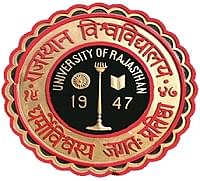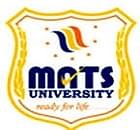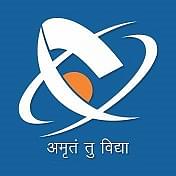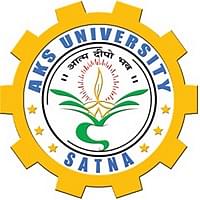Introduction about Ph. D in Mountain Environment
A PhD in Mountain Environment from best college is an advanced academic program that focuses on the complex and
dynamic interactions within mountainous regions. This interdisciplinary field
encompasses various aspects such as ecology, geology, climate science,
hydrology, and human-environment interactions. The program aims to produce
experts capable of addressing the unique challenges faced by mountain
environments, which are crucial for biodiversity, water resources, and cultural
heritage.
Students
undertaking a PhD in Mountain Environment engage in comprehensive research to
understand the intricate systems and processes that define mountainous
landscapes. They explore topics such as the impact of climate change on
mountain ecosystems, sustainable management of natural resources, conservation
strategies, and the socio-economic aspects of communities living in these
regions. This research is vital for developing adaptive strategies to mitigate
environmental risks and promote sustainable development.
The program
typically involves fieldwork in various mountain ranges, allowing students to
collect data and observe environmental phenomena firsthand. Advanced training
in scientific methodologies, data analysis, and geographic information systems
(GIS) equips students with the skills necessary to conduct high-level research.
Collaborations with governmental and non-governmental organizations, as well as
international research institutions, often provide additional opportunities for
practical experience and professional development.
Graduates of this
program are well-prepared for careers in academia, environmental consultancy,
conservation organizations, and governmental agencies. Their expertise is
essential for tackling global environmental challenges, particularly those
related to climate resilience, biodiversity conservation, and sustainable land
use in mountainous regions. Through their contributions, they help ensure the
preservation and enhancement of these vital ecosystems for future generations.
What is admission process for Ph. D in Mountain
Environment?
The admission process for PhD in Mountain Environment typically involves several key steps.
While specific requirements can vary by institution, the general process
includes the following:
1. Research Potential Programs and
Supervisors
Identify
Institutions: Research
universities and research centers that offer PhD programs in Mountain
Environment or related fields.
Contact Potential
Supervisors: Reach out to
faculty members whose research interests align with yours. Having a supervisor
who is interested in your research proposal can be crucial.
2. Meet Academic Requirements
Educational
Background: Most programs
require a master's degree in a relevant field, such as environmental science,
geography, ecology, geology, or related disciplines.
Academic
Transcripts: Provide
official transcripts from all post-secondary institutions attended.
3. Prepare Application Materials
Research Proposal: Develop a detailed research proposal
outlining your intended research topic, objectives, methodology, and
significance. This should align with the expertise of potential supervisors and
the research focus of the program.
Personal Statement: Write a personal statement or letter of
intent explaining your academic background, research interests, career goals,
and why you are interested in this specific program.
Curriculum Vitae
(CV): Submit an updated CV
highlighting your academic achievements, research experience, publications, and
any relevant work or volunteer experience.
4. Letters of Recommendation
Obtain References: Secure strong letters of recommendation
from academic or professional references who can attest to your research
capabilities, academic performance, and suitability for a PhD program.
5. Standardized Tests (if
required)
GRE/GMAT: Some programs may require standardized
test scores such as the GRE (Graduate Record Examination) or GMAT (Graduate
Management Admission Test). Check the specific requirements of each program.
6. Language Proficiency
English Proficiency
Tests: For non-native
English speakers, most institutions require proof of English proficiency
through tests like TOEFL (Test of English as a Foreign Language) or IELTS
(International English Language Testing System).
7. Submit Application
Online Application: Complete the online application form
provided by the institution. Ensure all required documents are uploaded or sent
as specified.
Application Fee: Pay any applicable application fees.
8. Interview (if required)
Interview Process: Some programs may require an interview as
part of the selection process. This could be conducted in person, over the
phone, or via video conferencing.
9. Funding and Scholarships
Apply for Funding: Explore funding options such as
scholarships, grants, and assistantships. Many programs offer funding packages
that cover tuition and provide a stipend for living expenses.
10. Decision and Enrolment
Admission Decision: After the review process, the admissions
committee will notify you of their decision. If accepted, you will receive an
offer letter.
Acceptance and
Enrolment: Accept the offer
and complete any additional enrolment procedures required by the institution.
By following these
steps, you can effectively navigate the admission process for a PhD in Mountain
Environment, ensuring that you meet all requirements and submit a strong
application.
What is eligibility for P. Dd in Mountain
Environment?
Eligibility for PhD in Mountain Environment typically involves meeting several academic,
professional, and sometimes personal criteria. While specific requirements can
vary by institution, the general eligibility criteria include the following:
1. Academic Qualifications
Master's Degree: Applicants should usually hold a master's
degree in a relevant field such as environmental science, geography, ecology,
geology, earth sciences, natural resource management, or a related discipline.
Academic
Transcripts: Submission of
official transcripts from all post-secondary institutions attended,
demonstrating a strong academic record.
2. Research Experience
Relevant Research: Prior research experience in related
fields is often required. This can include involvement in research projects,
thesis work, publications, or professional work experience that includes
research components.
Research Proposal: A clear and well-developed research
proposal that outlines your intended research topic, objectives, methodology,
and significance. This proposal should align with the expertise of potential
supervisors and the research focus of the program.
3. Letters of Recommendation
References: Strong letters of recommendation from
academic or professional references who can attest to your research
capabilities, academic performance, and suitability for a PhD program.
Typically, at least two to three letters are required.
4. Language Proficiency
English Proficiency: For non-native English speakers, proof of
English proficiency is usually required. Common tests include the TOEFL (Test
of English as a Foreign Language) or IELTS (International English Language
Testing System).
Minimum Scores: Each institution will have its own minimum
score requirements for these tests.
5. Standardized Tests (if
required)
GRE/GMAT: Some programs may require standardized
test scores such as the GRE (Graduate Record Examination) or GMAT (Graduate
Management Admission Test). Check the specific requirements of each program.
6. Personal Statement
Statement of
Purpose: A personal
statement or letter of intent explaining your academic background, research
interests, career goals, and why you are interested in the specific PhD
program.
7. Curriculum Vitae (CV)
Detailed CV: An updated CV that includes your academic
achievements, research experience, publications, relevant work or volunteer
experience, and any other pertinent information.
8. Interview (if required)
Interview Process: Some programs may require an interview as
part of the selection process. This could be conducted in person, over the
phone, or via video conferencing.
9. Additional Requirements
Specific Program
Requirements: Some programs
may have additional requirements such as specific coursework, certifications,
or field experience. It’s important to review the specific prerequisites for
each program you are interested in.
Meeting these
eligibility criteria ensures that you are well-prepared for the rigorous
demands of a PhD program in Mountain Environment and capable of contributing
significantly to research in this field.
What is syllabus for Ph. D in Mountain Environment?
The syllabus for PhD in Mountain Environment is highly interdisciplinary and typically tailored
to the specific research focus of the student. However, it generally includes
core courses, elective courses, research components, and fieldwork. The following
provides an overview of the typical components and subjects that might be
included in the syllabus:
1. Core Courses
These foundational
courses provide essential knowledge and skills:
Mountain Ecology: Study of the unique ecological systems in
mountain environments, including flora and fauna, ecological processes, and
biodiversity.
Geology and
Geomorphology: Examination
of mountain formation, geological structures, soil science, and
geomorphological processes.
Climate Science: Understanding climate patterns, climate
change impacts, and atmospheric processes specific to mountainous regions.
Hydrology: Focus on water resources, watershed
management, glaciology, and hydrological cycles in mountain areas.
Human-Environment
Interactions: Exploration
of the socio-economic and cultural aspects of mountain communities, land use,
and sustainable development.
2. Elective Courses
Electives allow
students to specialize in areas relevant to their research interests:
Conservation
Biology: Strategies for
preserving biodiversity and managing protected areas in mountain regions.
Remote Sensing and
GIS: Techniques for spatial
analysis, mapping, and monitoring environmental changes.
Sustainable
Resource Management:
Approaches to managing natural resources, such as forestry, agriculture, and
tourism, sustainably.
Environmental
Policy and Governance:
Examination of policies, regulations, and governance structures affecting
mountain environments.
Hazard and Risk
Management: Study of
natural hazards such as landslides, earthquakes, and avalanches, and strategies
for risk mitigation and disaster preparedness.
3. Research Seminars and Workshops
Research
Methodologies: Advanced
methods for scientific research, including quantitative and qualitative
techniques, data analysis, and fieldwork methods.
Academic Writing
and Communication: Skills
for writing research papers, theses, and grant proposals, and for presenting
research findings.
4. Fieldwork and Practical
Training
Field Research: Extensive fieldwork in various mountain
ranges to collect data, conduct experiments, and observe environmental
phenomena.
Laboratory Work: Analysis of field samples and data in a
laboratory setting, using advanced scientific equipment and techniques.
5. Dissertation Research
Proposal
Development: Formulation of
a detailed research proposal, including literature review, hypothesis, and
methodology.
Independent
Research: Conducting
original research under the guidance of a supervisor, often involving
interdisciplinary approaches.
Dissertation
Writing: Compilation and
presentation of research findings in a dissertation, followed by a defense
before an academic committee.
6. Interdisciplinary Collaboration
and Conferences
Collaborative
Projects: Participation in
collaborative research projects with other students, departments, or external
organizations.
Conferences and
Workshops: Attendance and
presentation at national and international conferences and workshops to share
research findings and gain feedback.












